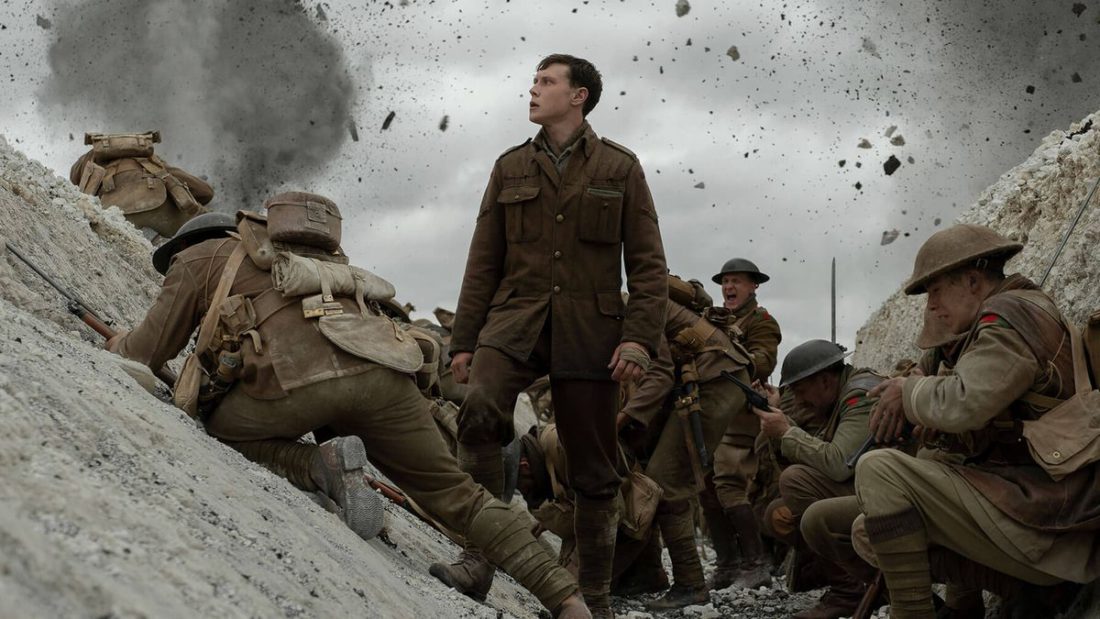The urge to compare Sam Mendes’ epic World War I film, 1917, to Steven Spielberg’s Saving Private Ryan (1998) is both understandable and apt. However, beyond obvious similarities, a handful of other — and, frankly, better — influences begin to surface. Most notably are two films by Stanley Kubrick, Paths of Glory (1957) and Full Metal Jacket (1987), Masaki Kobayashi’s epic Japanese anti-war trilogy The Human Condition (1959-61) and Elem Klimov’s 1985 Russian masterpiece, Come and See. These classic films, featuring surreal and nightmarish imagery, depict the absurdity, horror and psychological toll of war better than any others before or since. 1917 is a serious contender to join their ranks.
1917 is a film that comes with a gimmick attached: It’s made to look as if it’s been captured in one long continuous shot. It wasn’t, of course — shooting took nearly three months — but Mendes and cinematographer Roger Deakins masterfully use the technique to immerse us fully in historically unspeakable conditions, and it works damned well. I’ll admit, I had my doubts whether such an audacious stunt could be successfully pulled off, but the results speak for themselves. 1917 is a breathtaking film.
The story is simple: Two British soldiers (Captain Fantastic‘s George MacKay and Dean-Charles Chapman from HBO‘s “Game of Thrones”) are tasked with delivering a message to the front lines before German forces can launch an ambush. They undertake one of the most harrowing journeys through pure hell ever committed to film. As the camera moves, the size and scope of the war begin to reveal themselves. Picturesque countrysides are contrasted with death and mud that lie only a few hundred feet away from each other and serve as a constant reminder that war is not only real, but is waged on family farms and in the streets of village neighborhoods.
François Truffaut is famously attributed with saying that there can be no such thing as an anti-war film because the medium can never truly capture the barbarity of conflict, which winds up being glorified rather than vilified. Whether or not he’s right, it’s doubtful that Mendes set out to make a strictly anti-war film. I believe his goal was much simpler: Tell the story of one particular day — a small cog in a grand and grim machine — without flinching at the horror and heroism that came with it.
Starts Jan. 10




Before you comment
The comments section is here to provide a platform for civil dialogue on the issues we face together as a local community. Xpress is committed to offering this platform for all voices, but when the tone of the discussion gets nasty or strays off topic, we believe many people choose not to participate. Xpress editors are determined to moderate comments to ensure a constructive interchange is maintained. All comments judged not to be in keeping with the spirit of civil discourse will be removed and repeat violators will be banned. See here for our terms of service. Thank you for being part of this effort to promote respectful discussion.